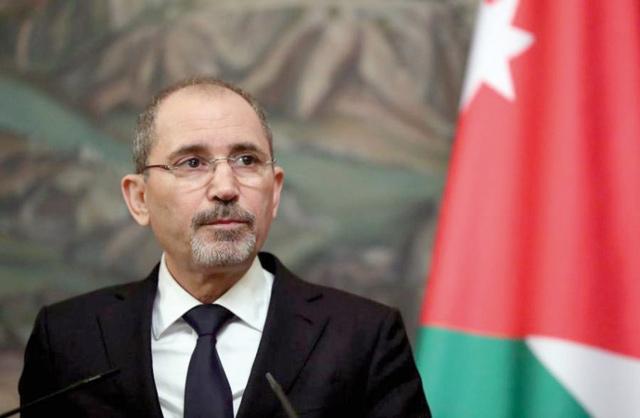- Local News
- Sun-2020-11-29 | 03:43 pm

A "strong commitment to common values, principles and a renewed commitment to strengthening cooperation in the region” was renewed on the occasion of the 25th anniversary of the Barcelona Process, also known as the Union for the Mediterranean (UfM).
"In the interest of peace, stability, common development and prosperity, the two sides of the Mediterranean must work on bridging the gap between them,” said Deputy Prime Minister and Foreign Minister Ayman Safadi in a press conference in Barcelona virtually attended by The Jordan Times.
Safadi told The Jordan Times that "the developmental, financial and humanitarian gap between the northern and southern sides of the border is greatly felt by the southern side”.
"A lot has been done under the umbrella of the European Neighbourhood Policy (ENP). But much more is needed and can be achieved... Trade deficits must be bridged, investment flows need to be enhanced, and long-term programmes that support good governance, human rights, social development, gender equality, educational reforms must always be present,” said the foreign minister.
Referring to the European Union as a "great partner”, Safadi added that he hopes that the lessons learned in the past 25 years help bridge that gap and help Jordan in hosting Syrian refugees among other challenges.
"Refugees must not feel that we have abandoned them. Host communities must not face the burden of caring for refugees alone. My country is the second largest refugee host per capita. We know that investing in refugees is investing in the stability and safety of our collective future,” he added.
The officials all stressed the need to "find a political solution to the Syrian crisis that preserves its territorial integrity, restores peace and stability for the country and its people, and creates appropriate conditions for the safe and voluntary return of refugees in accordance with Security Council Resolution 2254”.
Safadi also highlighted the need to "open new political horizons and achieve a just and comprehensive peace in the Middle East region, which can only be done by re-launching effective negotiations for the sake of resolving the Palestinian-Israeli conflict on the basis of the two-state solution and in accordance with international law.”
The foreign minister highlighted the importance of "preserving the current historical status of the holy sites in Al Quds and the Hashemite custodianship over them”.
Safadi, accompanied by High Representative of the European Union Josep Borrell, Spanish Minister of Foreign Affairs, European Union and Cooperation Aranca Gonzalez Laya, Secretary General of the Union for the Mediterranean Nasser Kamel held two days of meetings in Barcelona for Fifth Regional Forum of Foreign Ministers of the Member States of the Union for the Mediterranean.
In the concluding press conference, the officials said that the forum had discussed issues central to the region, among which was the "importance of combating terrorism, extremism and a culture of hate that seeks to divide” and stressed the need for additional efforts to promote harmony and respect for the other.
The forum also discussed the union's commitment to addressing issues such as the environment, climate change, human and economic development, digital transformation and civil protection.
"To be completely honest, the Mediterranean is worse off than it was 25 years ago,” said Borrell.
Borrell noted that the coronavirus pandemic and its repercussions on health and economy not only have added to the unrest of the region but also have highlighted the "need to intensify efforts to contain the pandemic by strengthening cooperation in research and scientific knowledge with the aim of ensuring access to a vaccine for the virus as well as mitigating its impact on economic growth.”
Supporting the "central role of UNRWA politically and financially”, as well as the urgency of finding a political solution to the Libyan crisis on the basis of UN decisions and regional initiatives were also discussed at the meeting.
By highlighting "the three baskets” of the Barcelona process: Political and security issues, economic and financial development, and enhancement of social, cultural and human aspects, Safadi concluded that "the Union for the Mediterranean can be an effective vehicle for doing just that. The neighbourhood policy can set objectives, offer tools and help us navigate the road towards the complementarity and economic integration that is in the interest of us all”.









